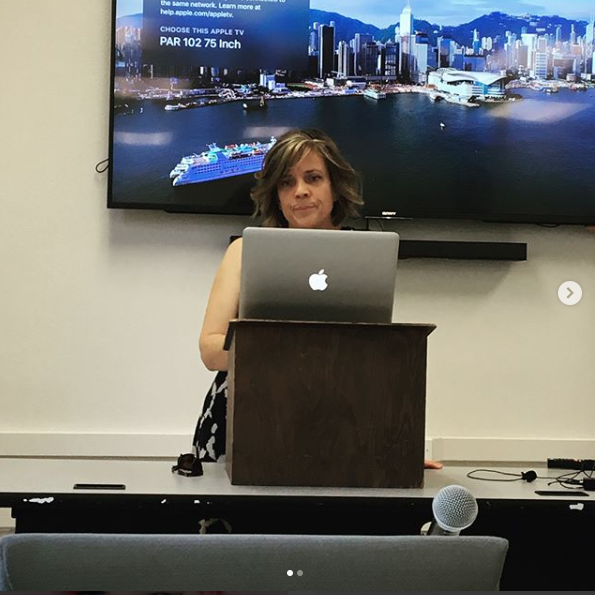On November 17, the DWRL hosted a guest lecture and Q &A with Dr. Linda Walsh. Dr. Walsh is an associate professor of English at the University of Nevada, Reno. Her research focuses on rhetoric of science, topologies, visual rhetoric, and reception studies with specific attention to the ethos, or the public role, of the scientist and the public reception of visual STEM arguments. She is the author of Scientists as Prophets: A Rhetorical Genealogy (Oxford, 2013) and Sins Against Science: The Scientific Media Hoaxes of Poe, Twain, and Others (SUNY, 2006). Dr. Walsh spoke to the DWRL and associated faculty and graduate students about her upcoming RSA Institute project “Taking Rhetoric to the City.”
Drawing on John Ackerman’s work on civil engagement and cultural projects, Dr. Walsh and her colleagues at the University of Nevada Reno are attempting to change the way that the UN Reno campus interacts with the city. They aim to further integrate the currently “insular” Nevada-Reno campus with a wider city community; encouraging students to participate in city life. The goal is to bring the work of Rhetoric scholars to the public through civil engagement and cultural projects, such as encouraging students to participate in accessibility re-design of the Reno campus or engaging segments of the Reno community in oral history projects.
However, Dr. Walsh acknowledges the risks of “bringing rhetoric to the public” when working in a neo-liberal institutional structure . There is always the risk of unintentionally exploiting the trauma and history of marginalized individuals. There is also the risk of potentially exploiting students’ intellectual and creative labor. In particular, the integration of campus life with urban space must navigate issues of class and poverty, particularly when dealing with issues of homeless populations and public space.
The RSA project schedule begins with the UNR Campus Master PLan and theory for group. This will consist of 3.5 days discussion, engagement, and application (“slow media” events, archival work, participant-observation, documentary work, criticism of material-discursive spaces). The facilitators include a senior rhetorical scholar, content area specialists in other fields (such as neuroscience or Criminal Science) and a local liaison. The RSA institute concludes with a symposium, in which the eight working groups will present their work to the UNR and Reno administrators.
Dr. Walsh’s talk was followed by a short Q and A session.


